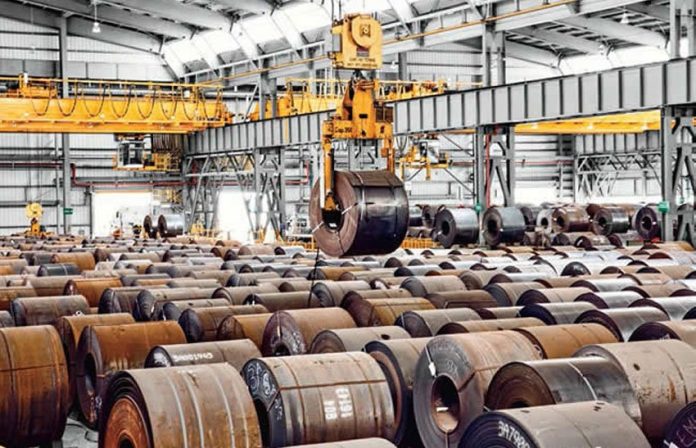The federal government’s decision not to renew a 15% safeguard duty for imported steel and protect the Mexican industry is a grave mistake, two business groups have warned.
In a joint statement directed at President López Obrador and Economy Secretary Graciela Márquez, the National Chamber of the Iron and Steel Industry (Canacero) and the Confederation of Industrial Chambers (Concamin) said they were concerned about the January 31 expiration of the 15% safeguard for steel imports from countries with which Mexico doesn’t have a trade agreement.
The safeguard measure was first put in place in October 2015 and was subsequently renewed every six months before the current government allowed it to lapse on February 1.
Canacero and Concamin said the decision not to renew the safeguard measure could lead to Mexico being used as an interim destination for goods headed to the United States.
Its renewal, they said, is a fundamental factor in having the United States exclude Mexico from the tariffs on steel and aluminum that were imposed on June 1 last year.
Non-renewal will result in Mexico being seen as a “triangulation platform” and the respective 25% and 10% tariffs won’t be removed, the business groups said.
That would place the approval of the new United States-Mexico-Canada (USMCA) trade agreement at risk because the majority of members of the United States House of Representatives have placed the elimination of the measure in North America as a condition for their approval of the pact, Canacero and Concamin said.
Because there are no negotiations currently under way to have the tariffs removed, Canacero president Máximo Vedoya said, the Mexican steel industry is unprotected.
In contrast, other countries have put up adequate barriers to protect their steel sector, he said.
“Unfortunately, Mexico is taking a different path and we have to convince the Secretariat of the Economy that this is a mistake, a grave mistake, because we can’t compete and it’s not worth competing with different weapons,” Vedoya said.
Francisco Cervantes, president of Concamin, said that a safeguard on foreign steel is urgently needed but added that the Secretariat of the Economy (SE) is dragging its feet.
“We’re in discussions [but] we don’t feel receptiveness [to our point of view]. They’ve taken too long in their communication . . .” he said.
“We’re seeking safeguards . . . [of] a significant percentage [but] that don’t affect the automotive sector,” Cervantes continued, adding that Secretary Márquez has been invited to reflect on the need to protect the national steel industry.
Canacero and Concamin said the industry generates more than 700,000 direct and indirect jobs in Mexico but the sector is under threat from the global overproduction of the metal and the 25% tariff “imposed unilaterally and unfairly by the United States government.”
